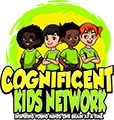With so many SEL programs, how do you know what actually works?
With SEL (Social Emotional Learning) trending, schools face a crowded market of programs. But parents and educators ask: Which ones actually work and which are just buzzwords?
The Science of Effective SEL
Evidence shows SEL works best when:
-
Delivered consistently (not one-off assemblies)
-
Integrated into daily lessons
-
Taught by trained educators
-
Sequenced, active, focused, and explicit (SAFE framework)
Common Pitfalls
-
Short-term “feel-good” events with no follow-up
-
Programs lacking cultural relevance
-
Insufficient teacher training
-
Failure to track progress
Real-World Examples That Work
-
Morning meetings to set tone
-
Role-playing conflict resolution
-
Journals for self-awareness
-
Teacher-led mindfulness exercises
A Checklist for Schools
-
Does it align with CASEL competencies?
-
Is it culturally responsive?
-
Is training included?
-
Is progress measured?


